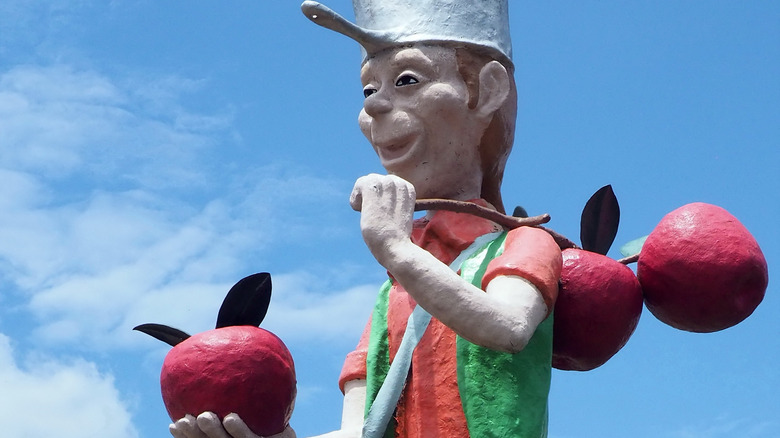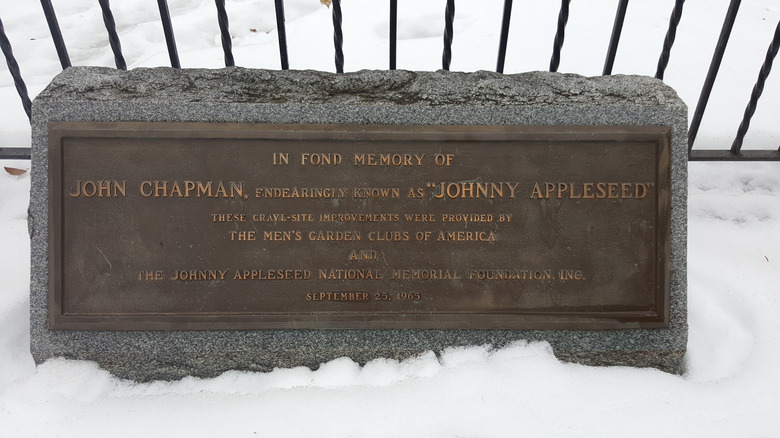The Surprising Thing Johnny Appleseed's Apples Were Really Used For
Johnny Appleseed is a folk hero whose tree-planting exploits are taught to schoolchildren all across the country. The tale of John Chapman, a man who planted acres of apple orchards along the frontier of early colonial America, has become so legendary and imbued with fairy-tale wonder that many are surprised to learn he was a real person at all (via Smithsonian Magazine). More might be surprised to learn one of the most common uses for his apples: booze.
Apples, like many fruit we find today in grocery stores, have gone through decades of selective breeding to be sweet and edible for daily use. In the 18th and 19th centuries, apples weren't really fit for consumption, destined for the cider barrel rather than the pantry. Cider was the drink of choice for much of rural America, in place of wine, beer, coffee, and in some cases, even water. While the image of a man wandering through the wilderness carrying a big bag of apple seeds is actually accurate, most kindergarten teachers overlook the actual use of the apples.
Johnny Appleseed was fueled by profits
Johnny Appleseed's motivations were purely monetary. According to Food & Wine, the U.S. Congress passed the Donation Act in 1792 that granted 100 acres of land to anyone willing to settle in the frontier of Ohio as a means of encouraging trade and discouraging Native American expansion. The catch: To prove that the settlement would be permanent, each prospective pioneer had to plant 50 apple trees. Chapman saw a business opportunity: Claim as much as he could, do the hard work of planting trees, then sell the land for big profits.
Chapman did not believe in the practice of grafting apple trees to make more edible fruit, as it was against his religious beliefs. All of his many orchards were thus "wild apples," colloquially known as "spitter" apples for reasons that would become apparent to anyone who took a bite into one. The only use for these was to make hard cider, which was as common on American dinner tables as bread at the time and would have had significant demand at the time anyway. Only one tree believed to have been planted by Chapman still stands today, but it's no surprise that many brands of apple cider bear his nickname.

